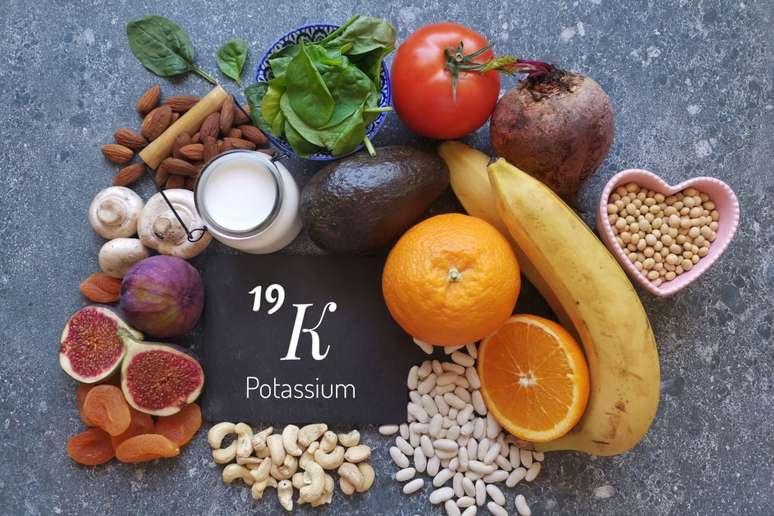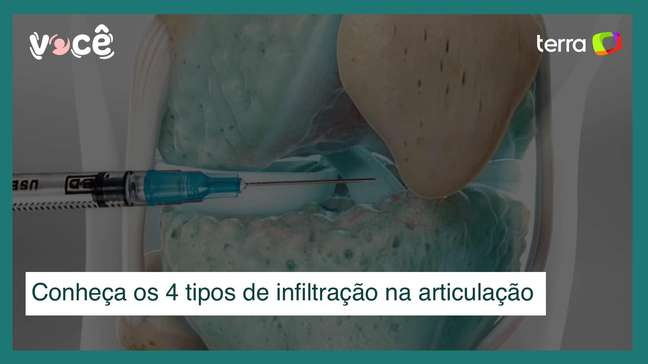Learn how to lower blood pressure with a potassium-rich diet
Credit: Potassium helps lower blood pressure (Image: Shutterstock)
Arterial hypertension, also known as high blood pressure, is a chronic disease that affects 35% of the Brazilian population, according to data from the Ministry of Health. Therefore, care is needed with food, as excess salt can contribute to an increase in blood pressure.
“High salt intake is known to be associated with high blood pressure and an increased risk of heart attacks and strokes. In addition, high blood pressure is the first leading cause of kidney failure,” explains nephrologist Dr. Caroline Reigada, a specialist in Intensive Medicine at the Brazilian Association of Intensive Medicine.
Potassium against hypertension
Some foods, however, act as protection, as certain substances are beneficial to the body and help control blood pressure. Potassium, present in bananas, avocados, salmon, among others, is an example of this, as demonstrated by a study published in the European Heart Journal, a journal of the European Society of Cardiology, in July 2022.
“Potassium helps the body excrete more sodium in the urine. The study showed that dietary potassium was associated with greater health gains in women. It is worth mentioning that increased potassium intake has also been linked to the prevention of other cardiovascular risks.” , adds nutritionist Dr. Marcella Garcez, director and professor at the Brazilian Association of Nutrology (ABRAN).
Differences between men and women
The study published in the European Heart Journal included 24,963 participants (11,267 men and 13,696 women) from the EPIC-Norfolk study, which recruited people aged 40-79 from general practice in Norfolk, UK, between 1993 and 1997. 59 years for men and 58 years for women. The researchers looked at the association between potassium intake and blood pressure after adjusting for age, gender, and sodium intake.
“The results suggest that potassium helps maintain heart health, but that women benefit more than men. The relationship between potassium and cardiovascular events was the same regardless of salt intake, suggesting that potassium has other ways to protect the heart, as well as increase sodium excretion,” explains Dr. Carolina Reigada.
Potassium is found in vegetables, milk, beans and nuts (Image: Shutterstock)
Food sources of potassium
The World Health Organization (WHO) recommends that adults consume at least 3.5 grams of potassium per day. “Foods high in potassium include vegetables, fruits, nuts, beans, dairy products, and fish,” says Dr. Marcellus Garcia.
This type of mineral is present in foods such as banana (each 100 g contains 358 mg), avocado (485 mg), salmon (628 mg), potatoes (535 mg), milk (154 mg), spinach (558 mg), chocolate dark chocolate (830 mg), pistachio (1,025 mg), Brazil nut (659 mg), and mushroom (318 mg).
Other benefits of potassium
According to Dr. Caroline Reigada, consuming potassium also helps prevent kidney stones. “Abnormally high calcium in the urine (hypercalciuria) increases the risk of developing kidney stones. Therefore, to reduce calcium excretion in the urine, a high potassium intake further reduces the risk of kidney stone formation,” she says.
Choose healthier foodsAND
The doctors point out that the findings indicate that a heart-healthy diet goes beyond limiting salt to boost potassium. “Food companies can help by switching from the standard sodium-based salt to a potassium salt alternative in processed foods. Additionally, we should all prioritize fresh, unprocessed foods as they are high in potassium and low in salt,” recommends Dr. Marcellus Garcia.
Source: Terra
Ben Stock is a lifestyle journalist and author at Gossipify. He writes about topics such as health, wellness, travel, food and home decor. He provides practical advice and inspiration to improve well-being, keeps readers up to date with latest lifestyle news and trends, known for his engaging writing style, in-depth analysis and unique perspectives.








